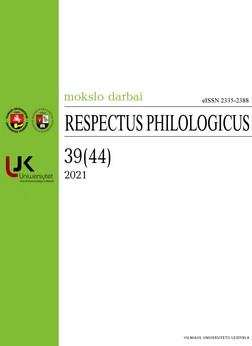Lietuvių atsisakymai ir jų mandagumas
Lithuanian Refusals and Politeness
Author(s): Inga Hilbig, Donata KatinaitėSubject(s): Sociolinguistics, Baltic Languages
Published by: Vilniaus Universiteto Leidykla
Keywords: linguistic politeness; refusals;
Summary/Abstract: This study investigates Lithuanian refusals to comply with requests. Refusals are face-threatening speech acts. They can endanger social relationships, and therefore require mitigation by employing politeness means. The aim of the study is to find out strategies, sub-strategies, internal and external modifications of Lithuanian refusals. The research data was collected from students using an open-ended discourse completion test and consists of 1046 refusals. Summarizing the results, it can be stated that Lithuanians opt for indirect refusals. When refusing directly, the least straightforward strategy – stating the inability to comply with a request – is used, especially by women. Refusals (especially the direct ones) are often mitigated with external modifications that were again more frequent in women’s responses. Socioculturally, the most acceptable and thus polite way to refuse in Lithuanian is to apologize and provide reasons. Overall, there is a clear tendency to express positive politeness when refusing.
Journal: Respectus Philologicus
- Issue Year: 2021
- Issue No: 39(44)
- Page Range: 58-72
- Page Count: 15
- Language: Lithuanian

